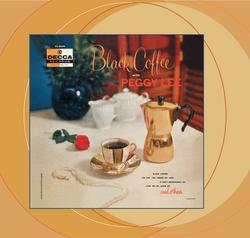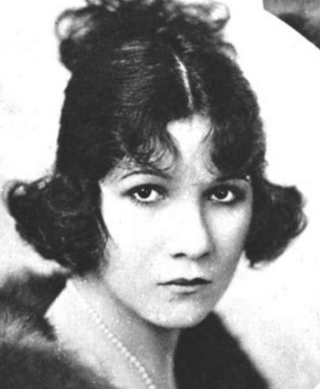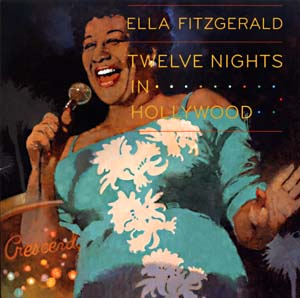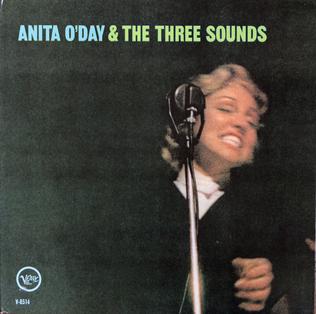Related Research Articles

Richard Charles Rodgers was an American composer who worked primarily in musical theater. With 43 Broadway musicals and over 900 songs to his credit, Rodgers was one of the most well-known American composers of the 20th century, and his compositions had a significant influence on popular music.

Lorenz Milton Hart was an American lyricist and half of the Broadway songwriting team Rodgers and Hart. Some of his more famous lyrics include "Blue Moon"; "The Lady Is a Tramp"; "Manhattan"; "Bewitched, Bothered and Bewildered"; and "My Funny Valentine".

Rodgers and Hart were an American songwriting partnership between composer Richard Rodgers (1902–1979) and the lyricist Lorenz Hart (1895–1943). They worked together on 28 stage musicals and more than 500 songs from 1919 until Hart's death in 1943.

William Clarence Eckstine was an American jazz and pop singer and a bandleader during the swing and bebop eras. He was noted for his rich, almost operatic bass-baritone voice. In 2019, Eckstine was posthumously awarded the Grammy Lifetime Achievement Award "for performers who, during their lifetimes, have made creative contributions of outstanding artistic significance to the field of recording". His recording of "I Apologize" was given the Grammy Hall of Fame Award in 1999. The New York Times described him as an "influential band leader" whose "suave bass-baritone" and "full-throated, sugary approach to popular songs inspired singers like Earl Coleman, Johnny Hartman, Joe Williams, Arthur Prysock, and Lou Rawls."

A Connecticut Yankee is a musical based on the 1889 novel A Connecticut Yankee in King Arthur's Court by American writer Mark Twain. Like most adaptations of the Twain novel, it focuses on the lighter aspects of the story. The music was written by Richard Rodgers, the lyrics by Lorenz Hart, and the book by Herbert Fields. It was produced by Lew Fields and Lyle D. Andrews. It enjoyed an original run on Broadway in 1927 of 421 performances and a number of revivals.

Black Coffee is the first album by Peggy Lee. It was released in the 10-inch format in 1953 by Decca. In 1956, at the request of the record label, Lee recorded four more songs for a reissue of the album in the 12-inch LP format.

Vivienne Sonia Segal was an American actress and singer.

Pal Joey is a 1940 musical with a book by John O'Hara and music and lyrics by Richard Rodgers and Lorenz Hart. The musical is based on a character and situations O'Hara created in a series of short stories published in The New Yorker, which he later published in novel form. The title character, Joey Evans, is a manipulative small-time nightclub performer whose ambitions lead him into an affair with the wealthy, middle-aged and married Vera Simpson. It includes two songs that have become standards: "I Could Write a Book" and "Bewitched, Bothered and Bewildered".

Louis Isidore "Buddy" Bregman was an American arranger and conductor.
"Little Girl Blue" is a popular song with music by Richard Rodgers and lyrics by Lorenz Hart, published in 1935. The song was introduced by Gloria Grafton in the Broadway musical Jumbo.

Anita Sings the Most is a 1957 album by Anita O'Day.
"Spring is Here" is a 1938 popular song composed by Richard Rodgers, with lyrics by Lorenz Hart for the musical I Married an Angel (1938), where it was introduced by Dennis King and Vivienne Segal.
"Johnny One Note" is a 1937 show tune from the 1937 Rodgers and Hart musical Babes in Arms, where it was introduced by Wynn Murray. Judy Garland sang it in the Rodgers & Hart biopic Words and Music (1948).

Anthology, also known as Anthology: The Best of Diana Ross and the Supremes, first released in May 1974, is a series of same or similarly titled compilation albums by The Supremes. Motown released revised versions in 1986, 1995 and 2001. In its initial version, a 35-track triple record collection of hits and rare material, the album charted at No. 24 on Billboard's "Black Albums" and No. 66 on "Pop Albums".

Sarah Vaughan Sings Broadway: Great Songs from Hit Shows is a 1958 studio album by Sarah Vaughan.

Anita O'Day and Billy May Swing Rodgers and Hart is a 1960 studio album by American jazz singer Anita O'Day, arranged by Billy May. O'Day and May had previously recorded an album dedicated to a single composer, Cole Porter, in 1959.

Twelve Nights in Hollywood is a 2009 live album by the American jazz vocalist Ella Fitzgerald, recorded at the Crescendo Club in Hollywood, Los Angeles over ten nights in May 1961, and a subsequent pair of performances in June 1962.

The Music of Johnny Mathis: A Personal Collection is a box set by American pop singer Johnny Mathis that was released in 1993 by Columbia Records and gave an overview of his career with four CDs containing 86 tracks that he selected himself. In the liner notes he wrote that his "undying gratitude is really to the lyricists and composers of all these memorable songs. Without the words and music I have sung over the years, my career as a singer would not have existed. My thanks is always to these special and gifted people."

The Essential Johnny Mathis is a compilation album by American pop singer Johnny Mathis that was released in 2004 by Columbia Records and includes several of his early hits such as "Chances Are" and "Misty" as well as a wide assortment of selections spanning more than four decades of his recording career.

Anita O'Day & the Three Sounds is an album by vocalist Anita O'Day and The Three Sounds recorded for the Verve label in late 1962.
References
- ↑ R&H Theatricals background.
- ↑ Rodgers and Hart A Musical Anthology, published by Hal Leonard
- ↑ Rodgers and Hart, A musical Anthology, published by Hal Leonard
- ↑ Rodgers and Hart, A musical Anthology, published by Hal Leonard
- ↑ "www.allmusic.com". www.allmusic.com. Retrieved July 3, 2024.